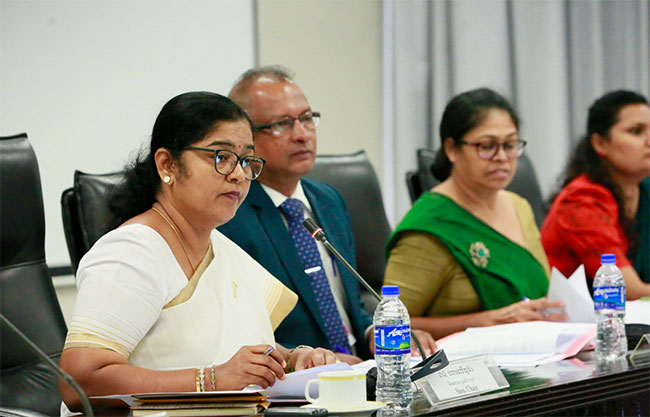New measures for early diagnosis and inclusion of autistic children in Sri Lanka
Sri Lankan authorities have announced plans to improve early treatment for autistic children, who number at least 9,000 according to the latest data. Plans include setting up model kindergartens, creating teacher training programmes, and implementing a single preschool education policy. For Minister Paulraj, active monitoring can provide autistic children with equal opportunities “toward a healthy developmental path”.
Colombo (AsiaNews) – The Ministerial Advisory Committee for Women and Children met last week in parliament, chaired by the Minister of Women and Child Affairs, Saroja Savithri Paulraj.
During the meeting, officials with the Ministry of Education noted that “a noticeable increase in the number of children diagnosed with autism in Sri Lanka. According to statistics, over 9,000 children have been identified so far.”
Overall, early diagnosis remains inadequate. In fact, “many children continue to suffer from various disabilities," Minister Paulraj said. “Children with autism should be identified during their early developmental stages, and only through early diagnosis can they be guided toward a healthy developmental path," she added.
This requires an active monitoring mechanism from birth, starting with the supervision of midwives working in public health facilities. To this end, Minister Paulraj noted that plans are in the works to establish three model kindergartens in specific regions for children with autism.
Creating a committee to implement this initiative to guide the children through appropriate developmental stages was also proposed.
In addition, teachers would be provided with the necessary knowledge and develop the required attitude to treat children with disabilities on par with other children. According to Education Ministry officials, future teachers undergo a six-month training programme on how to handle children with disabilities in environments that are more familiar and less institutional.
Officials from the Department of Probation and Child Care Services also explained that since children can only be placed under probationary care only via a judicial process, judges must be educated to understand the importance of providing care for such children within their family setting rather than institutionalising them.
Minister Paulraj, who chairs the committee, also mentioned steps that are being taken to unify preschools operating in different frameworks into a single, countrywide standardised system.
Officials also informed the committee that Ministry of Education and the Ministry of Women and Children are developing a joint policy on preschool education.







.png)










